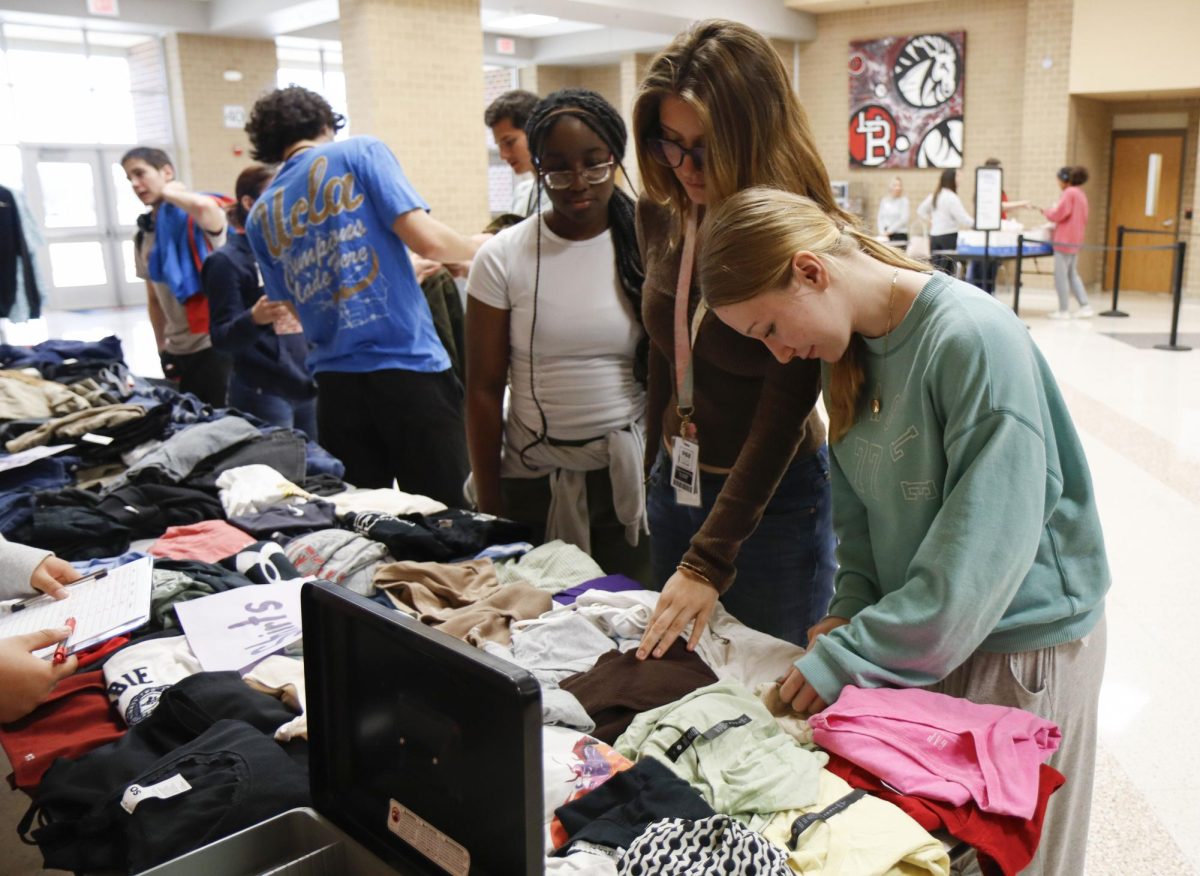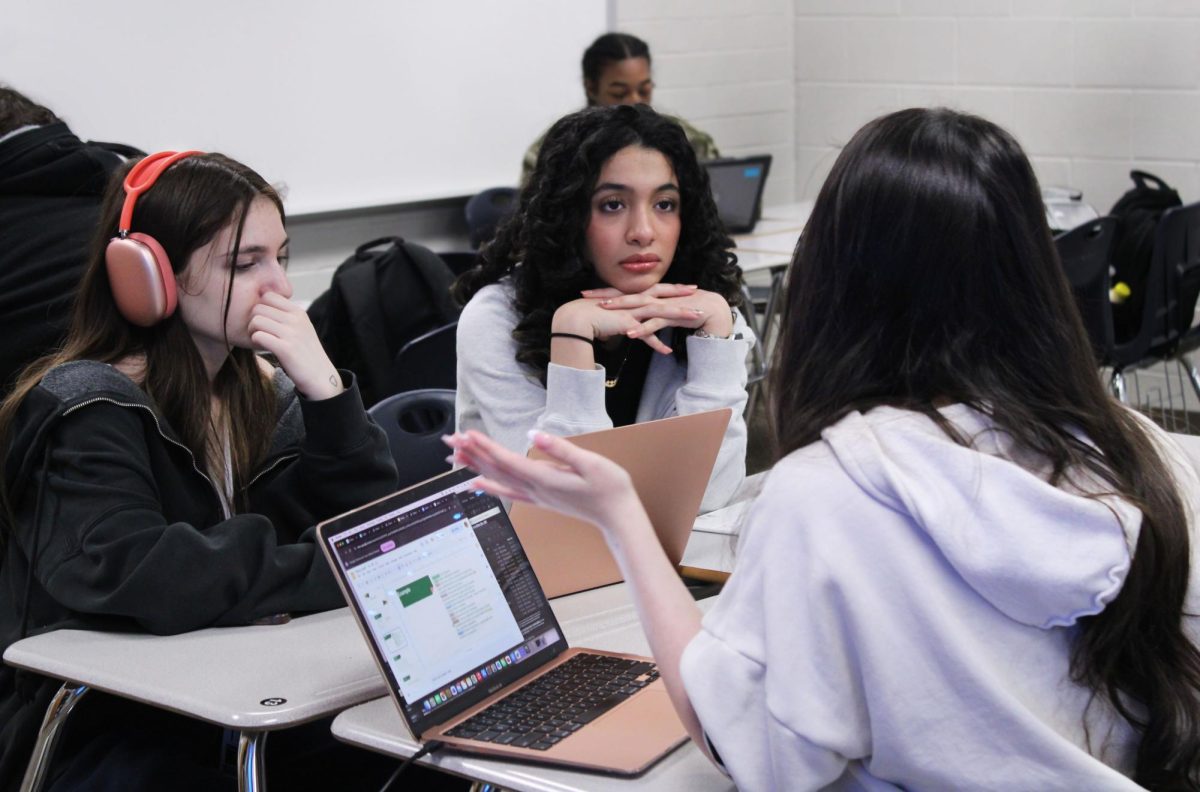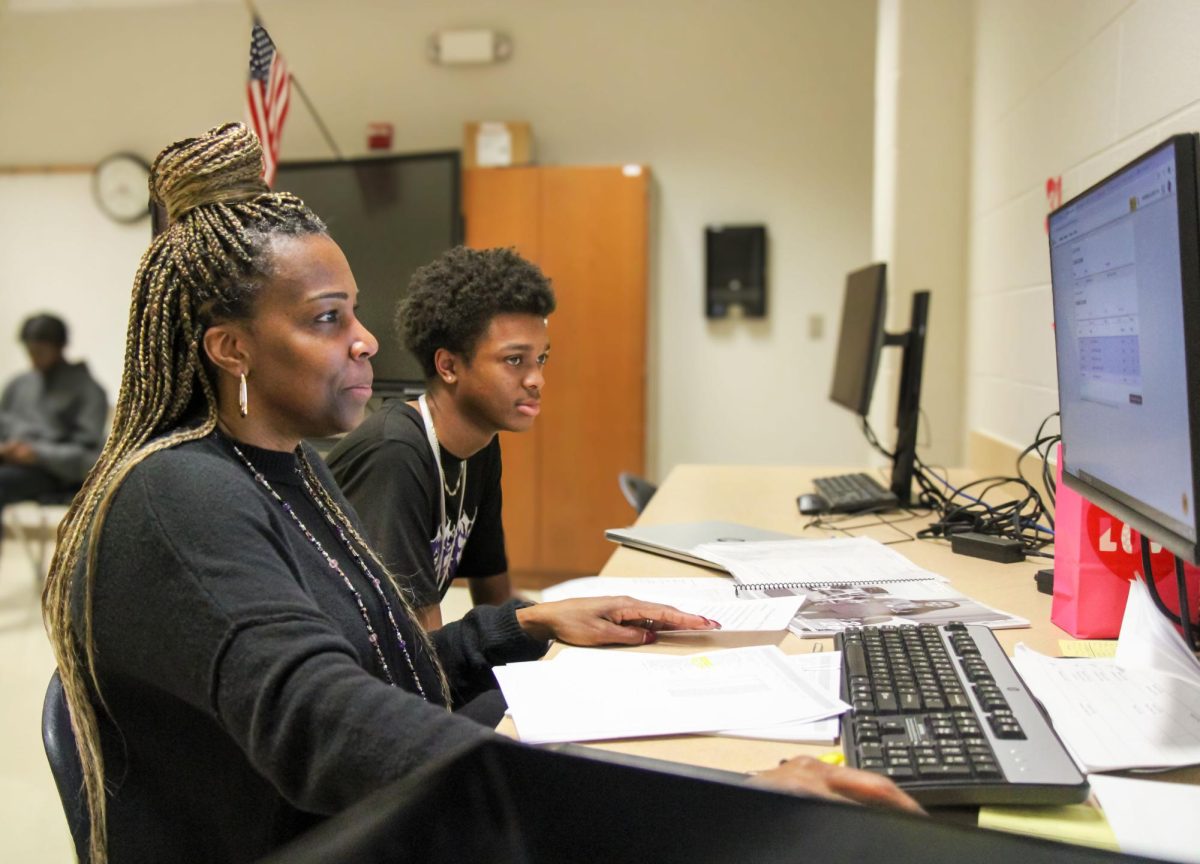Pre-AP and AP students of all grades and in various stages in the completion of their books prepare to take tests over summer reading assignments.
“Half of the book was in parentheses, and it was really annoying because he was explaining unimportant things. He needed to get on with things,” Slavik said. “The book is kind of funny though.”
New freshman Pre-AP English I teacher, Amberly Walker, thought The Princess Bride was a good choice for a summer reading assignment.
“What I like is that it reads more like a story and it has a lot of sarcasm in it,” Ms. Walker said. “I feel that students of this level really get that sarcasm and like it,”.
Sophomores Baylen Bonner and Elizabeth Shine both share similar views about the sophomore novel, The Poisonwood Bible by Barbara Kingsolver.
“It was a rocky start, and I didn’t like it at first. I think that’s mostly because I was forced to read it,” Bonner said, “but once I really got into it, it was really good. I really enjoyed it.”
Sophomore Elizabeth Shine says she had a rough start with the book.
“At first I did not get it at all and I hated it, and then at the end of the first section of the book it just clicked. I loved the rest of the book,” Shine said.
Lisbeth Bennett, who teaches Pre-AP English II, enjoyed the novel so much that she had trouble remembering to read the book as a teacher and not just someone reading for enjoyment. She feels the latter half of the book was probably difficult for students.
“As adults, we tend to look back at events that occurred to us and realize just how important they were and how much they have impacted who we became. You can’t do that when you’re 15,” Mrs. Bennett said. “I feel that students probably lost a lot of interest for this section of the novel; some students probably just put the book down at this point. The action comes to a stop and it’s basically an exploration of character,”.
The junior summer reading novel, Fast Food Nation, is written by the controversial investigative journalist, Eric Schlosser, whose criticisms of the food industry made him a target of the food industry. Stephanie Bonneau, the AP English III teacher, feels students might misconstrue the true purpose of the book.
“This book is not “Super Size Me.” It does not solely focus on the lack of nutrition in fast food,” Ms. Bonneau said. “It goes into the history of the business, the hiring practices, and the ingredients in the food. The second half of the book deals with the meat packing industry as a whole, not just limited to fast food.”
Mrs. Bonneau feels the author is biased in his political leanings and believes that it negatively affects the book. She thinks its subject matter is important enough that the message shows.
“I believe that although the author is biased in his presentation, the information he has is accurate and something the general public really needs to know,” Ms. Bonneau said. “It gives a good account of the fast food and meat packing industries business practices.
Junior Maressa Schulze found the book to be an insightful look into the food industry.
“I’m in to all the food and health stuff,” Schulze said. “I found that it was really interesting about the meat packing industry and the way they clean the animals and abuse their workers. It made me not want to live near a meat packing plant.”
Stephanie Shackelford, the AP English IV teacher, believes that the senior summer reading book, The Invisible Man by Ralph Ellison, is a good choice for a summer reading novel for multiple reasons.
“First, it’s rich with literary elements. If a student reads it just for the sake of reading (as if they were reading a leisure book – something like Twilight), they will miss many of the nuances,” Mrs.Shackelford said. “Second, because the book offers so much for analysis, it appears most often on the AP Literature test’s open-ended essay prompt.”
The Invisible Man is a novel that addresses the numerous social and intellectual issues facing African-Americans in the early twentieth century, and it lends an introspective insight to those who read it.
“I like that that book can really make you think about yourself and other people. It can make you really take a look at what you believe about mankind and race,” Mrs. Shackelford said.
The book begins in a way that may disturb some students, but Mrs. Shackelford assures that it isn’t a constant feature throughout the book.
“The beginning of the book is a little graphic and violent; however, after a couple of chapters the violence pretty much ends,” Mrs. Shackelford said. “The first few chapters may bother some students, but I try and reassure them that it is not like that throughout the book. It does get better.
- In this classic fairy-tale, a young beautiful woman named Buttercup falls in love with the handsome farm-boy Westley in the fictional land of Florin. When Westley leaves to seek his fortune so they can marry, his ship is captured by the Dread Pirate Roberts, the disreputable pirate notorious for killing all those whose vessels he boards. Believing Westley to be dead, Buttercup is forcibly engaged to the future King of Florin, Prince Humperdinck.
The Poisonwood Bible- Barbara Kingsolver
- In 1959, a missionary family, the Prices, move from Georgia to the African village of Kilanga in the Belgian Congo. The story of their tumultous life is chronicled by Orleanna Price, wife of Baptist missionary Nathan Price, and their four daughters: Rachel, Leah, Adah, and Ruth May.
Fast Food Nation- Eric Schlosser
- Written by investigative journalist Eric Schlosser, the book examines the impact that the United States’ fast food industry has had on both a local and global scale. The book goes into depth on the state of the meat processing industry, the use of child -targeting ad campaigns, and America’s steadily growing obesity issue.
Invisible Man- Ralph Ellison
- Invisible Man is a novel that addresses the numerous social and intellectual issues facing African-Americans in the early twentieth century. It is the story of a man who feels metaphorically invisible to the world because of his skin color. The book tells of the events in the narrator’s life that lead him to feel as if people do not see him for who he is, but instead only see the color of his skin.









